Página 244
two hundred forty-four
UNIT 18
WHAT LIES AHEAD
A expressão what lies ahead é usada para se referir a eventos, desafios ou oportunidades que ainda não aconteceram, mas que se espera que ocorram.
As I finish my studies, I'm both excited and nervous about what lies ahead in my life.
1. Escreva uma frase sobre você usando a expressão what lies ahead. Depois, compartilhe-a com os colegas.
Resposta pessoal. Se necessário, permita aos estudantes desenvolver a atividade em duplas.
Exchanging ideas
Agora, você vai conversar com o colega mais próximo sobre as questões a seguir. Virem-se um para o outro, ouçam as orientações do professor e iniciem a conversa.
1. Qual fase da vida você acha que o menino da fotografia está vivendo? Em sua opinião, como ele está se sentindo? Por quê?
2. Qual é a relação entre a imagem destas páginas e a expressão what lies ahead?
3. Você se preocupa com o futuro e com os caminhos que deve percorrer ao longo da vida? Explique.
4.
Track 40 Ouça um trecho de
um vídeo que apresenta sete passos para a escolha de uma
carreira. Você concorda com o passo citado? Quais você
imagina que sejam os outros?
Professor, professora: Comentários e respostas nas Orientações para o professor.
Nesta unidade, você terá como objetivos:
- conversar e refletir sobre decisões em relação à carreira profissional;
- ler e compreender um verbete de enciclopédia sobre uma profissão;
- ouvir e compreender uma entrevista sobre a escolha de uma profissão;
- compreender e utilizar o direct e o reported speech;
- praticar a pronúncia dos sons /ð/ and /θ/ em inglês;
- fazer uma apresentação sobre uma profissão e conversar a respeito dela;
- produzir um verbete de enciclopédia sobre uma profissão.
Página 245
two hundred forty-five

Página 246
two hundred forty-six
Warming up
Career path
1. Por qual área do conhecimento você mais se interessa? Você acredita que isso pode influenciar sua futura escolha profissional? Justifique sua resposta.
Resposta pessoal. Se necessário, mencione algumas possíveis áreas de conhecimento, como ciências exatas, ciências naturais, ciências humanas, linguagens e artes.
2. Você acha que características de sua personalidade e suas principais habilidades serão importantes para desenvolver a área de atuação ou profissão que deseja escolher? Justifique sua resposta.
Resposta pessoal. Dê a oportunidade para que os estudantes expliquem por qual motivo acham que determinadas características e habilidades serão importantes.
3. O que deve ser considerado para a escolha de uma carreira profissional? Organize, no caderno, de acordo com sua opinião, os itens a seguir, do mais importante ao menos importante. Depois, converse sobre isso com um colega e justifique sua resposta.
- vacation time
- your parents' and friends' opinions
- salary
- work environment
- working hours
- benefits
- your skills and strengths
- your interests and values
Resposta pessoal. Se necessário, oriente-os a consultar um dicionário para compreender o significado dos itens.
Learning vocabulary
1. Analise as profissões a seguir e reflita sobre algumas características necessárias para exercê-las. Depois, relacione essas profissões com as habilidades listadas.
A.

B.

C.

D.

E.

F.

I. Ability to work under pressure.
II. Communication skills.
III. Creativity.
IV. Leadership.
V. Multitasking capability.
VI. Organization.
VII. Patience.
VIII. Problem-solving skills.
IX. Teamwork skills.
X. Technology skills.
Respostas pessoais. Aceite diferentes respostas, desde que façam sentido no contexto.
2. Junte-se a um colega e façam uma lista em inglês de outras profissões e das habilidades necessárias para exercê-las. Depois, compartilhem a lista com a turma, dizendo qual ou quais profissões vocês gostariam de exercer.
Resposta pessoal. Incentive as duplas a fazer um brainstorming de profissões e a elencar as habilidades relacionadas a elas.
Página 247
two hundred forty-seven
3. Pesquise a expressão career path e explique-a em inglês com suas palavras para o colega mais próximo.
Possível resposta: It is the way that a person can progress in his/her career, either in one job or in a series of jobs.
4. No caderno, escreva adjetivos correspondentes aos substantivos a seguir.
a ) anxiety
Resposta: anxious.
b ) commitment
Resposta: committed.
c ) confidence
Resposta: confident.
d ) excitement
Resposta: excited.
e ) responsibility
Resposta: responsible.
f ) worry
Resposta: worried.
Tip
Pesquise o significado das palavras novas no dicionário para verificar se elas não são falsos cognatos. Assim, você não as interpretará ou usará de forma incorreta.
5. Reescreva as frases a seguir substituindo os substantivos pelos adjetivos correspondentes e fazendo as alterações necessárias. Confira o exemplo.
My anxiety about the future is normal, as I need to make important decisions.
Feeling anxious about the future is normal, as I need to make important decisions.
a ) I have no worries about my future.
Possível resposta: I'm not worried about my future.
b ) I was filled with excitement when I heard I had passed my exams.
Possível resposta: I was very excited when I heard I had passed my exams.
c ) Teachers and parents should give students confidence to make their decisions.
Possível resposta: With the help of teachers and parents, students will feel more confident about their decisions.
d ) I made a commitment to study hard for the final exams.
Possível resposta: I am committed to studying hard for the final exams.
e ) We have responsibility for our choices.
Possível resposta: We are responsible for our choices.
6. Complete as frases dos balões a seguir escolhendo a palavra mais apropriada para cada contexto.
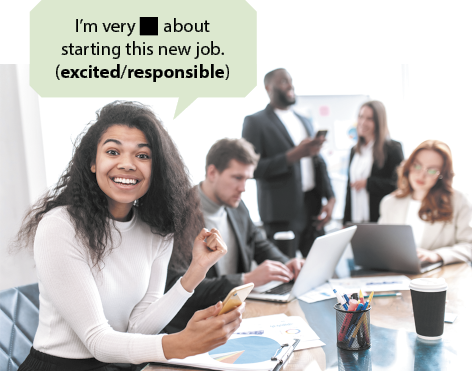
Resposta: excited.

Resposta: worried.
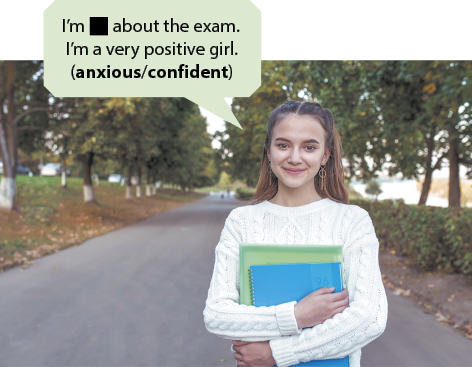
Resposta: confident.
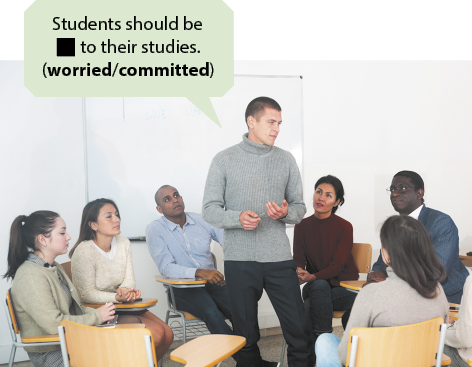
Resposta: committed.
Página 248
two hundred forty-eight
Reading
Encyclopedia entry
Pre-reading
1. Do you know what an encyclopedia entry✚ is? Do some research and write, at least, three characteristics of this genre.
Possível resposta: An encyclopedia entry portrays some quick information on a particular subject, including definitions, histories or biographies. It is concise and objective. The entry may contain hyperlinks that direct the reader to information about related topics.
2. Do you think that an encyclopedia entry is a reliable source of information? Write your opinion and discuss this topic with a classmate.
Resposta pessoal. Comentários nas Orientações para o professor.
3. When you want to know the meaning of a word or some quick information about a subject, how do you search for it? Read the following options and talk about your preferences with a classmate.


Resposta pessoal. Oriente os estudantes a considerar as imagens apresentadas para iniciar a troca de ideias.
4. Do some research and write the differences between an encyclopedia entry and a scientific article. Then, share your findings with your classmates.
Possível resposta: Scientific articles present in-depth information. An encyclopedia entry is usually written by experts or editors with knowledge of the subject, but does not undergo a rigorous peer review process. A scientific article, on the other hand, is written by researchers and undergoes peer review before being published in academic journals.
5. In pairs, do some research about the following scientists and write a paragraph about their lives to answer the questions that follow.
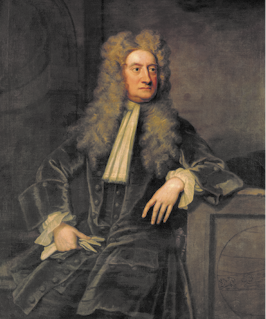
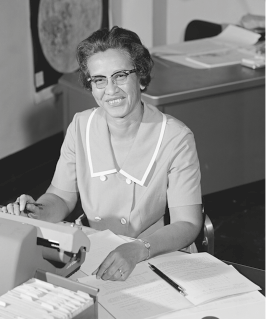
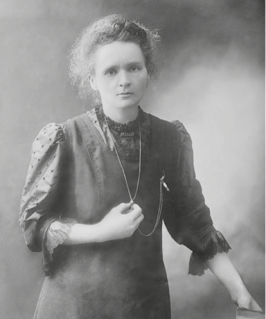
- Where are they from?
- What did they study?
- What were their professions or their careers?
- What were their contributions to science?
Professor, professora: Respostas e comentários nas Orientações para o professor.
6. You are going to read an encyclopedia entry with information about chemical engineering. Which words from your paragraph in the previous activity do you think are going to be in the encyclopedia entry?
Resposta pessoal. Oriente os estudantes a retomar a atividade anterior, rever a pesquisa feita e o parágrafo que escreveram para que possam levantar hipóteses sobre o vocabulário do verbete de enciclopédia.
Página 249
two hundred forty-nine
While reading
1. Read the text and answer the following questions.
Chemical engineering
Previous (Chemical element)
Next (Chemical equation)
Chemical engineering is the branch✚ of engineering that applies scientific and mathematical principles to design and develop processes by which available chemicals can be converted into a variety of useful products. A person who practices chemical engineering is called a chemical engineer. Those chemical engineers involved in the design and maintenance of large-scale manufacturing processes are known as process engineers.
Chemical engineering is applicable to a wide✚ range of technologies, including the production of energy, materials, electronics, and pharmaceuticals, the processing of food, and environmental protection and remediation✚. Development of the high-quality materials and large-scale processes characteristic of industrialized economies is a feat of chemical engineering.
As ecological sustainability takes on ever greater significance in the twenty-first century, there is likely to be a sustained demand for chemical engineers to collaborate with ecologists, mechanical engineers, and others in planning eco-industrial projects. Such projects would integrate several different industrial and biological processes into synergistic✚ complexes to produce materials and products needed by human society.
Chemical engineering timeline
In 1824, French physicist Sadi Carnot, in his On the Motive Power of Fire, was the first to study the thermodynamics of combustion reactions in steam✚ engines. In the 1850s, German physicist Rudolf Clausius began to apply the principles developed by Carnot to chemical systems at the atomic to molecular scale. During the years 1873 to 1876, at Yale University, American mathematical physicist Josiah Willard Gibbs, the first to be awarded a Ph.D. in engineering in the U.S., in a series of three papers, developed a mathematical-based, graphical methodology, for the study of chemical systems using the thermodynamics of Clausius. In 1882, German physicist Hermann von Helmholtz, published a founding thermodynamics paper, similar to Gibbs, but with more of an electro-chemical basis, in which he showed that measure of chemical affinity, such as the "force" of chemical reactions is determined by the measure of the free energy of the reaction process. Following these early developments, the new science of chemical engineering began to develop. [...]
Applications
Chemical engineering is applied in the manufacture of wide variety of products. The chemical industry proper manufactures inorganic and organic industrial chemicals, ceramics, fuels and petrochemicals, agrochemicals (fertilizers, insecticides, herbicides), plastics and elastomers✚, oleochemicals, explosives, fragrances and flavors, additives, dietary supplements, and pharmaceuticals. Closely allied or overlapping✚ disciplines include wood processing, food processing, environmental technology, and the engineering of petroleum, glass, paints and other coatings✚, inks, sealants, and adhesives.
[...]
CHEMICAL engineering. New World Encyclopedia. Available at: https://s.livro.pro/ky1g35. Accessed on: July 29th, 2024.
Página 250
two hundred fifty
a ) What is the person who works with chemical engineering called?
I ) Process engineer.
II ) Simple engineer.
III ) Chemical engineer.
Resposta: Alternativa III.
b ) What is the chemical engineer involved in the design and maintenance of large-scale manufacturing processes called?
I ) Process engineer.
II ) Simple engineer.
III ) Chemical engineer.
Resposta: Alternativa I.
2. Which of the following chemical engineering field applications are mentioned in the encyclopedia entry?
A.

B.

C.

D.

Resposta: Alternativas A, B e C.
3. The subtopic "Chemical engineering timeline" explains the beginning of the science of chemical engineering. In your notebook, draw a timeline and take notes of the important events that contributed to the development of this new science. Then, share them with a classmate.
Professor, professora: Respostas e comentários nas Orientações para o professor.
4. Read the text again and read these statements, identifying if they are true or false. Then, correct the false ones.
a ) This entry was extracted from an online encyclopedia and it is between two other entries: "chemical element" and "chemical equation".
Resposta: True.
b ) The entry is organized in three parts. The first three paragraphs present a wider view of the topic; paragraph four portrays some historical aspects; and paragraph five brings some applications of chemical engineering.
Resposta: True.
c ) Being an encyclopedia entry, the text should present deep information about chemical engineering.
Resposta: False. Generally, encyclopedia entries do not present deep information about a concept.
Post-reading
1. Discuss the following questions with your teacher and classmates.
a ) Which information in the text called your attention? Why?
Resposta pessoal. Incentive os estudantes a comentar o que já sabiam sobre essa área da engenharia e o que aprenderam com a leitura do verbete de enciclopédia, mencionando o que foi mais interessante para eles.
b ) After reading the text, would you consider pursuing a career in chemical engineering? Why?
Resposta pessoal. Incentive os estudantes a comentar se, após conhecer a profissão, acham que seria interessante exercê-la ou não e peça que expliquem o motivo.
2. Read the text and the activities again. Then, reflect on the vocabulary and the grammar in it. Talk to your teacher and classmates considering the following aspects.
a ) How I understood the content related to chemical engineering and its historical evolution.
b ) What I have learned so far and which aspects I found most challenging.
Resposta pessoal. Comentários nas Orientações para o professor.
Página 251
two hundred fifty-one
Listening
Interview
Pre-listening
1. You are going to listen to an interview with Adya Parida, a 25-year-old woman who left India to study computer science in the College of Engineering and Computer Science at Syracuse University, New York, USA. Before listening to the audio, talk to a classmate about the following questions.
a ) In your opinion, why did Parida leave her hometown, family and friends to study abroad?
Resposta pessoal. Auxilie os estudantes a pensar em contextos gerais, por quais motivos normalmente as pessoas escolhem estudar em outro país e se eles imaginam em quais cenários isso é possível.
b ) Would you leave your hometown, as Parida did, to study or work abroad? Why?
Resposta pessoal. É relevante que os estudantes deem justificativas para além do sim e do não.
c ) Which aspects of her decision do you believe she is going to talk about in the interview?
Resposta pessoal. Incentive os estudantes a levantar hipóteses sobre o conteúdo da entrevista que vão ouvir. Eles podem anotar palavras que esperam ser mencionadas, ideias sobre as quais acreditam que a entrevistada vai tratar ou perguntas que imaginam que podem ser feitas pelo entrevistador.
While listening
1.
Track 41 Listen to the interview and check if what you predicted in the
previous activity is correct or not. Talk to your classmates about
what was different.
Resposta pessoal. Auxilie os estudantes a comparar as hipóteses levantadas anteriormente com o que ouviram.
2.
Track 41 Listen to the interview again and choose the correct words to
complete the following sentences. Then, write down the complete
sentence with this word.
a ) Adya Parida (was/wasn't) able to visit all the colleges she applied to.
Resposta: wasn't.
b ) She did research on different (encyclopedias/websites) looking for engineering colleges. She looked at the (majors/minors) they offered and the clubs on campus. She tried to see if they had the things she (was looking for/was offered before).
Resposta: websites; majors; was looking for.
c ) One of her (mom's/dad's) friends had studied at Syracuse University, and it encouraged her to consider this university even (more/less).
Resposta: dad's; more.
d ) When she was at school, in the sixth or seventh grade, she was always interested in (math/languages) and science.
Resposta: math.
e ) She was first introduced to coding when she was (thirteen or fourteen/sixteen or seventeen). Her (sister/brother) got her interested in computer engineering.
Resposta: thirteen or fourteen; brother.
f ) She chose to study computer science because she felt like she could apply her (programming/math and science) skills into a computer program. She thought this field was (boring and ordinary/fantastic and exciting) and there's (a lot/a little) she could do in it.
Resposta: math and science; fantastic and exciting; a lot.
3. Adya Parida said that she could see herself doing something in STEAM. Do some research to discover what STEAM means and what its relation to computer science is.
Possível resposta: STEAM stands for Science, Technology, Engineering, Arts and Mathematics. Since computer science is a course that deals with many of these features, such as science, technology, engineering and mathematics, it can be comprehended under the STEAM approach.
Post-listening
1. In pairs, interview a classmate about their future plans and whether they intend to apply for colleges. Take notes by following these steps
- Your classmate's name.
- What colleges he/she intends to apply to or if he/she has other plans for the future.
- Why he/she decided to do that.
- What his/her uncertainties about the future are.
Resposta pessoal. Incentive os estudantes a compartilhar com a turma as informações coletadas, promovendo uma reflexão sobre as incertezas comuns a essa fase da vida.
2. How was it for you listening to this interview? Did you have any difficulties? What can you do to improve your listening skills?
Resposta pessoal. Incentive os estudantes a encontrar estratégias, de forma autônoma e participativa, para melhorar suas habilidades de escuta em inglês.
Página 252
two hundred fifty-two
Comprehending and using
Direct and reported speech
1. Leia o texto a seguir e responda às questões.
[...]
The rise of academic career plans
Figuring out what to do in life and how to get there is not easy for anyone. For teenagers, confronting raging✚ hormones in addition to mastering academics, it can be especially challenging. Increasingly, high schools, middle schools and even elementary schools are turning to academic career plans to help students start thinking about their future paths earlier and more effectively.

Scott Solberg, vice president of research for the Coalition for Career Development Center and a professor at Boston University, said the plans help young people see "the purpose and meaning of what they're learning" by discovering it on their own.
"When youth realize and become aware✚ of the trajectories they are creating, everything changes," he said. "When academic career plans are done well — and that is not always the case — youth are transformed."
[...]
Second graders, for example, read an illustrated account of "The Tortoise and the Hare", raising issues of self-management✚, persistence and goal setting, not to mention empathy and respect for others.
"With younger students, part of the purpose is linking student aspirations to potential careers", said Michele Corey, a second grade teacher at the school. […]
TOBENKIN, David. Academic Career Plans' Have Students Exploring Careers as Early as Kindergarten. The74, Aug. 27th, 2022. Available at: https://s.livro.pro/raweu2. Accessed on: Aug. 17th, 2024.
a ) De acordo com o texto, por que é desafiador pensar sobre o futuro na adolescência?
I ) Because, in this phase, teenagers are facing elementary school problems and hormones.
II ) Because teenagers are studying full-time and don't have time to reflect about their future.
III ) Because, in this phase, teenagers have to deal with extreme hormones while mastering academic work.
Resposta: Alternativa III.
b ) O que as escolas estão implementando?
I ) High schools and middle schools are implementing academic consultancy.
II ) High schools, middle schools and elementary schools are implementing academic career plans.
III ) Elementary schools are implementing trajectory plans.
Resposta: Alternativa II.
c ) Com que propósito os estudantes leem a história "The Tortoise and the Hare"?
I ) To help them develop self-management, persistence, goal setting, empathy and respect for others.
II ) To help them learn how to be polite and well-mannered.
III ) To help them link their aspirations to potential careers.
Resposta: Alternativa I.
Página 253
two hundred fifty-three
2. Leia os trechos extraídos do texto e complete a afirmação.
A.
"With younger students, part of the purpose is linking student aspirations to potential careers", said Michele Corey, a second grade teacher at the school.
B.
"When youth realize and become aware of the trajectories they are creating, everything changes," he said. "When academic career plans are done well — and that is not always the case — youth are transformed."
In these extracts, the author:
a ) uses his own words to report what someone said. This is reported speech.
b ) reproduces someone's exact words. This is direct speech.
Resposta: Alternativa b.
3. Associe as duas partes das frases de acordo com o texto. Em seguida, complete a afirmação.
A. Scott Solberg said that career plans helped young people ■
B. Scott Solberg also said that when academic career plans were done well, ■
C. Michele Corey said that part of the purpose of career plans was ■
I. to link student aspirations to potential careers.
II. discover the purpose and meaning of what they were learning on their own.
III. youth were transformed.
Resposta: A - II; B – III; C – I.
In these sentences, the person speaking:
a ) uses their own words to report what someone said. This is reported speech.
b ) reproduces someone's exact words. This is direct speech.
Resposta: Alternativa a.
4. Indique quais frases são verdadeiras e quais são falsas de acordo com o texto. Depois, corrija as falsas.
a ) Reported speech is used to say exactly what someone has said and the speech can be written between quotation marks.
Resposta: False.
b ) Direct speech is used to report what someone said without reproducing his/her exact words.
Resposta: False.
c ) When we report what someone else has said, we use verbs like say, tell and ask.
Resposta: True.
d ) In reported speech, we usually change the tenses. For example, the simple past shifts to the past perfect, the simple present shifts to the simple past and the simple future (will) shifts to would.
Resposta: True. Explique aos estudantes que, além dos verbos, costuma ser necessário mudar os pronomes e as expressões de tempo usadas nas frases. Por exemplo: "I have to make this decision today", Alice said. – Alice said she had to make the decision that day.
Learning more
Say and tell
Say means to express something using words. We use say in reported speech. When we mention who something is said to, we use the preposition to and the conjunction that.
- André said he was excited about choosing his major.
- People always say to teens that it's necessary to make decisions about the future.
Tell means to give information to someone. It is also used in reported speech. After tell, we need to mention who received the information. It can be followed by the preposition about or by the conjunction that.
- Marcie told the counselor that she is worried about the exams.
1. Rewrite the following sentences in your notebook and complete them using the verbs say, said, tell or told.
a ) Experts ■ that having to choose a career is very stressful for teenagers.
Resposta: say.
b ) Some teens don't ■ their parents and teachers about their worries and anxieties.
Resposta: tell.
c ) The students ■ me about their plans for the future.
Resposta: told.
d ) Melissa ■ she doesn't want to go to college.
Resposta: said.
Professor, professora: Após a correção da atividade, peça aos estudantes que se organizem em duplas e pensem em outros exemplos de frases com esses verbos.
Página 254
two hundred fifty-four
Activities
1. Read the direct speech in the bubbles. Then, complete the following reported speech statements.

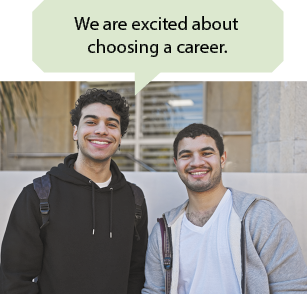
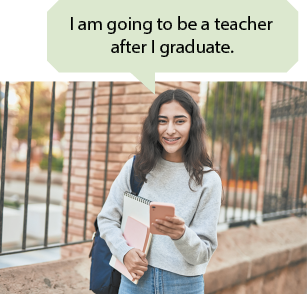
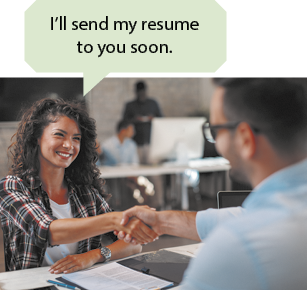
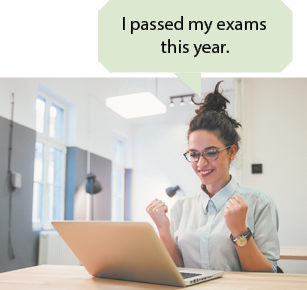

a ) Mike told me that ■.
Possíveis respostas: he works in an office/he worked in an office.
b ) Samantha said ■ her resume to him soon.
Possíveis respostas: she will send/she would send.
c ) Pedro and Tom said that ■.
Possíveis respostas: they are excited about choosing a career/they were excited about choosing a career.
d ) Caroline told me ■.
Possíveis respostas: she passed her exams last year/she had passed her exams the year before.
e ) Mary said that ■ after she graduates.
Possíveis respostas: she is going to be a teacher/she was going to be a teacher.
f ) Fernando said ■ a lot.
Possíveis respostas: he always studies/he always studied.
Speaking up
/ð/ and /θ/
1. Listen and repeat.
a ) My father is a physical therapist.
b ) That woman works at the theater.
c ) Together we gave thanks.
d ) The weather was terrible today. It was rainy with thunder and lightning.
2. With a partner, practice saying the following words.
/ð/
brother
other
rather
there
/θ/
math
think
three
both
Página 255
two hundred fifty-five
Speaking
Presentation about professions

1. Read some examples of work fields below and make a list of professions that most interest you. Then, share your list with a classmate.
A.

B.

C.

D.

Respostas pessoais. Possíveis respostas: A – software engineer, web developer, artificial intelligence engineer; B – pharmacist, teacher, biomedical, laboratory technician, microbiologist; C – journalist, public relations, broadcast journalist, social media manager, D – teacher, school counselor, librarian, online course developer.
2. You are going to choose one of the professions from the list you created in the previous activity and make a presentation about it to your classmates. Think about the steps to prepare for and perform your presentation.
- Decide which profession you are going to talk about in your presentation and which aspects of this profession you are going to mention.
- Organize the material you are going to need for the presentation. For example, you can use the board, slides or a piece of paper to guide you.
- Conduct the presentation in English.
- Give your classmates some time to ask any questions they might have about your presentation.
Professor, professora: Oriente os estudantes a escrever um resumo em inglês do que vão falar e, antes da apresentação, auxilie-os a melhorar o texto e a resolver dúvidas de vocabulário e pronúncia.
3. Watch your classmates' presentations and take notes so that you can ask questions after they have finished. Here are some examples of questions that you could ask them.
- Why did you choose to talk about this profession?
- Is there anything you don't like about this profession? Why?
- Do you know a friend or family member that chose this career?
- What is your favorite aspect of this job?
Professor, professora: Lembre os estudantes de que essas perguntas são apenas sugestões. Eles devem prestar atenção nas apresentações dos colegas para que não perguntem sobre tópicos que já foram mencionados. Caso tenham dificuldade para elaborar novas questões, ajude-os a formulá-las.
4. After the presentations, discuss the following questions with your classmates.
a ) In your opinion, what factors may influence your choice of a future professional career?
b ) What is the importance for society of the professional career you chose to talk about?
c ) Do you believe that certain professions will be unnecessary in the future? Justify your answer.
Respostas pessoais. Incentive os estudantes a participar da atividade utilizando o máximo de inglês que conseguirem. Ao final da discussão, relembre a turma de que todas as profissões são importantes para a sociedade e que também é necessário respeitar e valorizar as escolhas e os desejos de cada um.
Página 256
two hundred fifty-six
Writing
Encyclopedia entry
Pre-writing
1. It is time to create an encyclopedia entry. You are going to do some research and plan an encyclopedia entry about a profession you like. Follow these steps and write the information in your notebook.
- List and describe the main characteristics of the profession.
- Do some research about when this profession was created. Take notes of important historical dates and events.
- Write down the references to the sources of the information you collected.
- Read an encyclopedia entry (printed or online) and discuss its structure with a classmate or in a group, identifying the use of hyperlinks and subtitles in the entry format.
Professor, professora: Oriente os estudantes a escolher uma profissão que seja interessante e relevante para os leitores ou a região onde moram.
While writing
1. With the information about your chosen profession, you are going to plan your writing. In order to produce your encyclopedia entry, remember to consider the following information.
- What? An encyclopedia entry about a specific profession.
- Why? To inform readers about a profession.
- How? By providing descriptions of the profession, its responsibilities, requirements, and other relevant information.
- To whom? For people interested in learning about the profession.
- Where? Decide with your teacher and classmates whether you will publish your entry on the school's blog or create an informative mural.
Professor, professora: Leia as etapas de planejamento com os estudantes e verifique se compreendem o que deve ser feito.
2. Now, you are going to write the first version of your encyclopedia entry. Follow these steps.
a ) Include a clear and direct title mentioning the chosen profession.
b ) Describe the profession explaining its main responsibilities and tasks.
c ) Use subtitles like "History and Origin", "Main Responsibilities", "Requirements and Education" etc.
d ) Select and add images illustrating the profession.
e ) Exchange texts with a classmate. Comment on each other's work and give suggestions for improvement. Make the necessary corrections according to your classmate's comments.
3. Write the final version of your encyclopedia entry and collaborate with your teacher and classmates to determine the most suitable publication platform or place.
Professor, professora: Auxilie os estudantes durante a produção escrita. Comentários nas Orientações para o professor.
Post-writing
1. Read your classmates' encyclopedia entries and discuss with your class and teacher the following question.
a ) Which encyclopedia entry did you like the most and why?
Resposta pessoal. Oriente os estudantes a pensar em qual verbete chamou mais a atenção deles, se foi pela área ou pelas atribuições das tarefas.
b ) What have you learned by reading your classmates' entries? What information would you like to explore further?
Resposta pessoal. Peça aos estudantes que, caso julguem necessário, releiam os verbetes para anotar o que aprenderam com eles.
2. How was it for you to write an encyclopedia entry in English? What was the most challenging part of reading and writing an encyclopedia entry?
Respostas pessoais. Incentive os estudantes a compartilhar suas percepções e experiências ao longo da aprendizagem, comentando, por exemplo, se tiveram dificuldades e, nesse caso, como elas foram superadas.
Página 257
two hundred fifty-seven
Summing up
Let's think about the topics you have studied in this unit. List the main points studied in each topic below. Then, talk to a classmate and compare notes. Finally, share your notes with the whole class.
In this unit I…
- talked to my classmates about career paths;
- read an encyclopedia entry;
- listened to an interview about a career choice;
- studied direct and reported speech;
- practiced the pronunciation of the sounds /ð/ and /θ/;
- made a presentation about a profession and talked about it;
- wrote an encyclopedia entry.
Respostas pessoais. Comentários nas Orientações para o professor.
What can I do to improve my English?
- Go back to the topics that I need to improve and ask for help from my teacher or classmates to understand them.
- Listen to talk shows.
- Read different kinds of encyclopedia.
- Make a list of the new words I learned in this unit and try to write sentences, in English, using them.
CONNECTIONS with CIÊNCIAS HUMANAS
As pessoas com deficiência e o mercado de trabalho
Leia o texto para conferir alguns dados acerca da realidade brasileira de pessoas com deficiência em relação ao mercado de trabalho.
[...]
Persons with disabilities have less access to education, work and income.
Of the 99.3 million employed persons in Brazil in 2022, 4.7% were persons with a disability. Among employed women, 5.4% had disabilities and, among men, 4.1%. Although it has the biggest contingent of persons with disability employed (1.8 million persons), the Southeast was the region with the lowest participation (4.0%). The North (5.7%) and Northeast (5.7%) recorded the highest participations of persons with a disability in the total number of employed persons.
The employment-population ratio, the percentage of employed persons in the population of working age, was 26.6% for persons with a disability and 60.7% for persons without a disability.
Concerning color or race, the employment-population ratio of black persons with a disability (31.2%) was higher than that for brown (27.4%) and white persons (24.4%) [...].
GOMES, Irene. Persons with disability have less access to education, work and income. Agência IBGE Notícias, July 7th, 2023. Available at: https://s.livro.pro/ov3pu4. Accessed on: Sept. 23rd, 2024.
Junte-se aos colegas e respondam às questões.
1. O título do texto afirma que pessoas com deficiências têm menos acesso à educação, trabalho e renda. Por que isso ocorre?
2. Em sua opinião, o que justifica a diferença no percentual da participação de pessoas com deficiência no mercado de trabalho nas regiões brasileiras?
3. Por que é importante que haja medidas com a finalidade de incluir as pessoas com deficiência no mundo do trabalho?
Professor, professora: Respostas e comentários nas Orientações para o professor.
Página 258
two hundred fifty-eight
Going out there
Nesta seção, você terá como objetivos:
- refletir sobre trabalho;
- definir áreas de interesse profissional com base em uma pesquisa;
- organizar uma feira de profissões.

Career fair
Você se lembra de quantas vezes já foi questionado sobre qual profissão escolher? Conseguiu dar uma resposta satisfatória para essa pergunta? Descobrir uma vocação pode não ser uma tarefa fácil, mas você pode utilizar algumas estratégias, como planejar e listar seus objetivos de vida, e com isso pensar em como conquistá-los por meio de uma profissão.
Professor, professora: Comentários nas Orientações para o professor.
Com dois ou três colegas, pensem em outras estratégias e façam uma lista em inglês. Depois, compartilhem com o professor e os outros grupos a lista com o que vocês pensaram e comparem com as demais para verificar se tiveram ideias parecidas ou diferentes.
1. O texto a seguir traz reflexões sobre trabalho e vocação. Leia-o e, depois, responda às questões.
Professor, professora: Embora o texto integral mencione 5 passos para auxiliar o estudante na escolha de sua futura profissão, são apresentados 4 passos.
How to make better decisions about your career
Picking your college major, choosing the perfect career, trying to decide if you should leave your job and move to a new one — decisions like these can feel daunting. We all spend a huge amount of time at work, and we all want (and deserve) to love what we do. But the path to finding that work isn't always clear.

Luckily, there are actions you can take to help you figure out what's right for you. Use this five-step framework to narrow down your options and focus on what's important.
1. What are your feelings telling you?
If you want to find a fulfilling career, it needs to align with your values. Your feelings can help you discern this, even if you haven't consciously named what those values are.
[...]

2. What matters to you?
Once you've connected with your emotions, you're ready for the next step: consciously identifying your values.
What are values? They're simply defined as what really matters to you, or your "why." That is, they can help you define why a certain decision feels more meaningful to you than another.
Understanding your "why" will allow you to make choices that align directly with the things you care about — choices that will keep you fulfilled longer term.
[...]
3. What matters to other people?
None of us exist in a vacuum. Just as it's important to get clear on what matters to you, it's also important to consider how your decision will impact your loved ones — because it probably will.
[...]
Página 259
two hundred fifty-nine
4. What is the reality of the situation?
The goal of asking yourself this question is to make sure that you are making your choices for the right reasons. You want to ensure that the decision you are about to make is based on correct data, not an erroneous interpretation of your situation. Otherwise, you might end up having false expectations or feeling disappointed by the choice you make.
[...]
It will take time, but giving your full attention to each of these points should help you reach a rational, appropriate decision about what career path is best for you, no matter what your current situation is. Not only that, but you'll also know, on a deeper level, that the decision you're making is in full alignment with your values, your emotions, yourself, and the people you love. And when it comes to a major decision like finding your perfect career, that's exactly as it should be.
YEN, Timothy. How to make better decisions about your career. Harvard Business Review, May 19th, 2021. Available at: https://s.livro.pro/dbi82z. Accessed on: Sept. 2nd, 2024.
a ) According to the first step presented in the text, what should we consider at the moment to make decisions about a professional career?
b ) In your opinion, what values should be considered in our decisions about a professional career?
c ) According to the text, why is it also important to consider people around you in your decision about your career?
d ) What is the importance of analyzing the different scenarios at the moment to choose a professional career?
e ) Do the suggestions presented in the text allow for a rational or emotional choice? Why?
f ) Do you agree with the aspects presented in the text to be considered at the moment to choose a professional career? Why?
Professor, professora: Respostas e comentários nas Orientações para o professor.
Getting down to work
Chegou a hora de conhecer diferentes carreiras e refletir sobre elas. Você e os colegas farão pesquisas, organizarão uma feira de profissões, conversarão com profissionais de diferentes áreas e encontrarão soluções que os auxiliem na busca por suas vocações.
Researching
Como há muitas profissões, não será possível incluir todas na feira. Assim, a primeira atividade a ser feita é uma pesquisa para descobrir as áreas de mais interesse entre todos da turma e dos estudantes de outras turmas. Para realizar essa tarefa, vocês precisam desenvolver perguntas que abranjam esse tópico e tornem a investigação possível. Confiram alguns exemplos a seguir.
- What do you prefer studying at school? Mathematics, Languages, Natural Sciences or Human Sciences?
- What are you good at? Doing sports, painting, talking to people?
- Do you prefer working alone or in a team? Why?
- Do you like solving problems? What kind?
- Do you like helping people? If so, what kind of activities do you usually do to help them?
- Do you enjoy activities with technology? Which ones?
Página 260
two hundred sixty
Analyzing and organizing the results
Com a ajuda do professor, você e os colegas farão uma avaliação das informações coletadas durante a pesquisa e um relatório com base no qual decidirão quais profissões serão incluídas na feira de profissões.
Com as escolhas feitas, o próximo passo será entrar em contato com os profissionais dispostos a participar da feira. Vocês poderão convidá-los para falar sobre suas profissões ou para responder às perguntas dos estudantes. Outra possibilidade é convidar universitários para compartilharem as experiências deles com relação à escolha do curso e contarem como tem sido essa vivência até o momento.
Com antecedência, anotem as questões que gostariam de fazer aos profissionais que estarão na feira. Caso não saibam o que perguntar, façam uma pesquisa prévia. Confiram as seguintes sugestões.
- When did you start doing this job?
- What are the advantages and disadvantages of your job?
- Do you have to work overtime? How many hours?
- Do you take work home? How often?
- In your opinion, is it important to know English for a professional in this area nowadays?
Organizing a career fair
Agora é o momento de organizar uma feira de profissões, que os ajudará a tirar dúvidas sobre diferentes carreiras para tomar uma decisão quanto ao futuro profissional.
Sigam essas etapas para organizar o evento:
1. Selecionem data, hora e local para a feira. Verifiquem se o local escolhido tem espaço suficiente para acomodar todos os convidados.
2. Decidam quantas mesas e cadeiras serão necessárias e verifiquem se está tudo pronto para receber os convidados.
3. Com antecedência, conversem com os profissionais e perguntem sobre os equipamentos de que precisarão. Vocês devem saber quais equipamentos a escola pode disponibilizar para o evento. Se necessário, perguntem aos profissionais se eles podem fornecer seus próprios materiais e equipamentos.
4. Confeccionem cartazes convidando os estudantes de outras turmas para a feira de profissões.
5. É importante que todos os profissionais tenham o mesmo tempo para explicar suas profissões e que, ao final de cada apresentação, os estudantes tenham tempo de fazer perguntas.
6. Não se esqueçam de providenciar uma caneta e um caderno ou um bloco de notas para fazer anotações.
Página 261
two hundred sixty-one
During the presentation
No dia da feira de profissões, certifiquem-se de que tudo está pronto, incluindo a sala e os equipamentos necessários para receber os profissionais. Sejam pontuais e organizados para que as atividades saiam conforme o planejado.
Prestem atenção nas apresentações de todos os profissionais, mesmo que sejam sobre ocupações que inicialmente não estejam entre suas áreas de interesse. Exponham todos os questionamentos anotados anteriormente e tirem suas dúvidas.
Fiquem atentos às perguntas dos colegas, pois elas podem trazer informações valiosas sobre essas possíveis carreiras. Lembrem-se de serem educados ao fazer perguntas aos entrevistados e sempre respeitarem os questionamentos e as opiniões dos colegas.
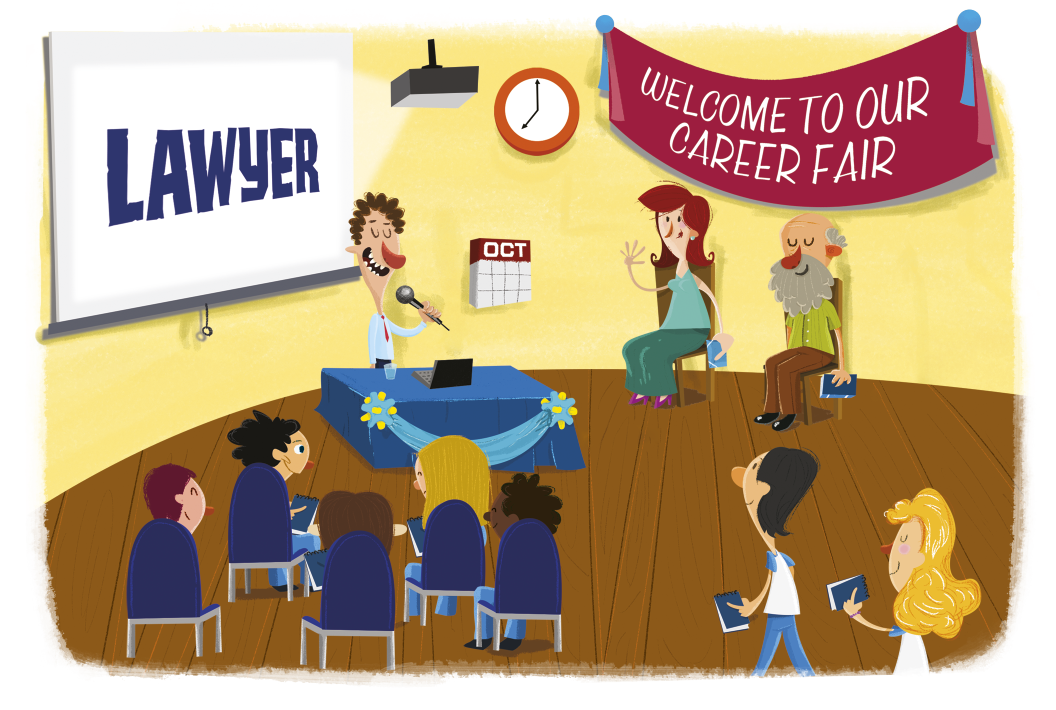
Evaluating the process
Com a participação do professor, conversem sobre as etapas realizadas na feira de profissões. Estabeleçam quais foram os pontos positivos e os negativos da atividade. As questões a seguir poderão guiá-los nessa reflexão.
What did I learn from the career fair? Did it help me find my vocation?
Did I respect other students' ideas and points of view?
Which step was the most difficult for me? Why?
Which career surprised me the most? Why?
Did I participate in all the steps?
Respostas pessoais. Comentários nas Orientações para o professor.